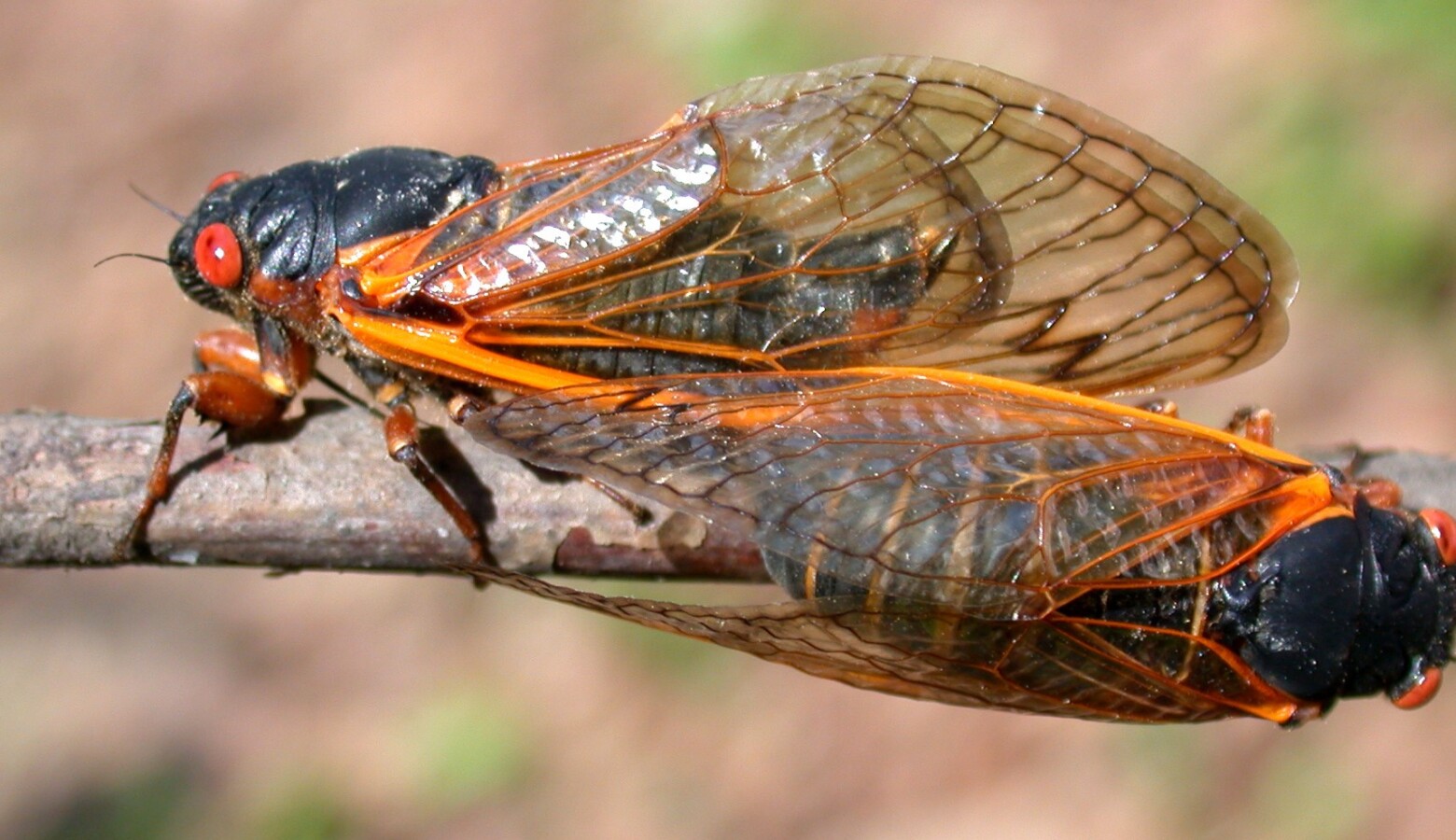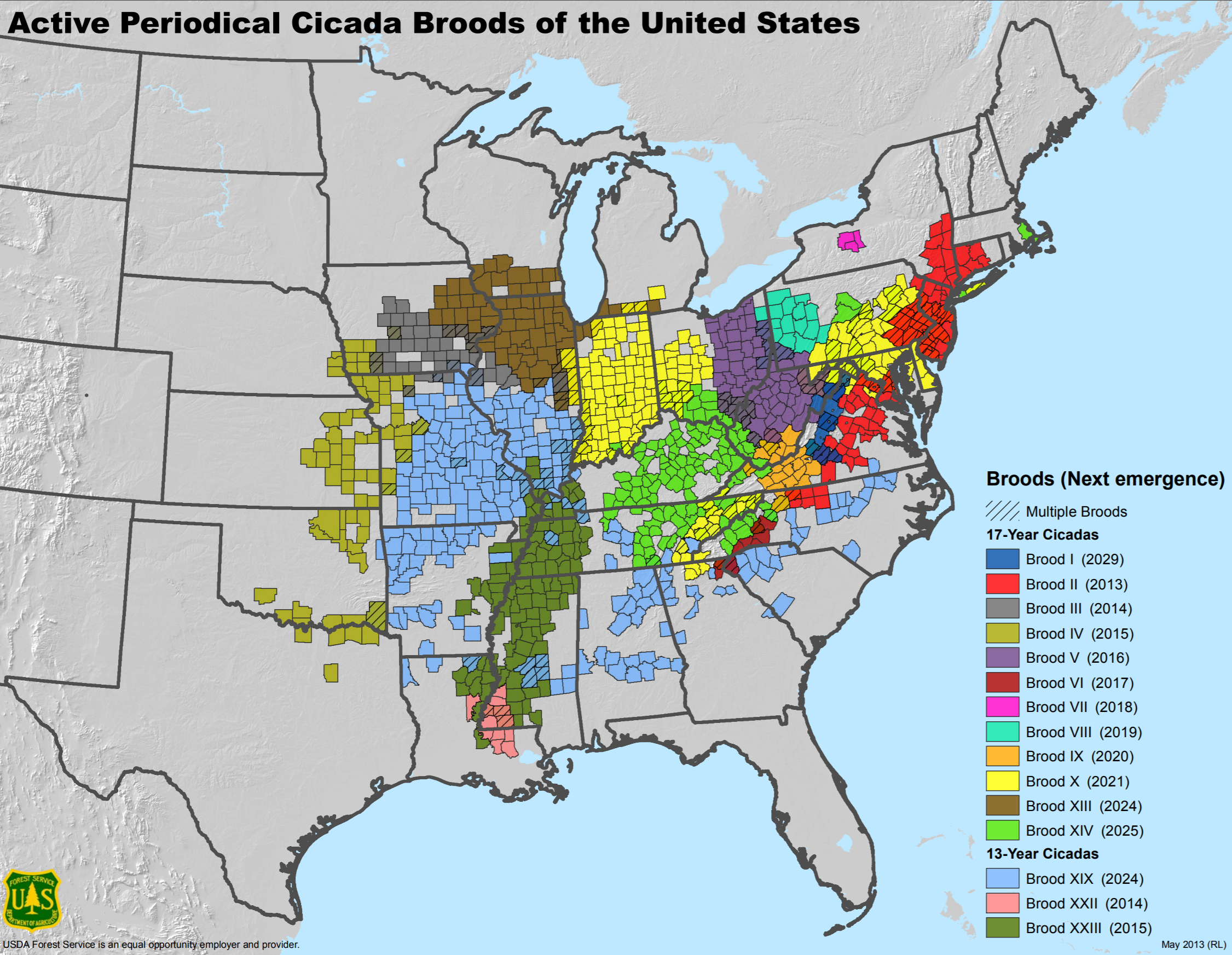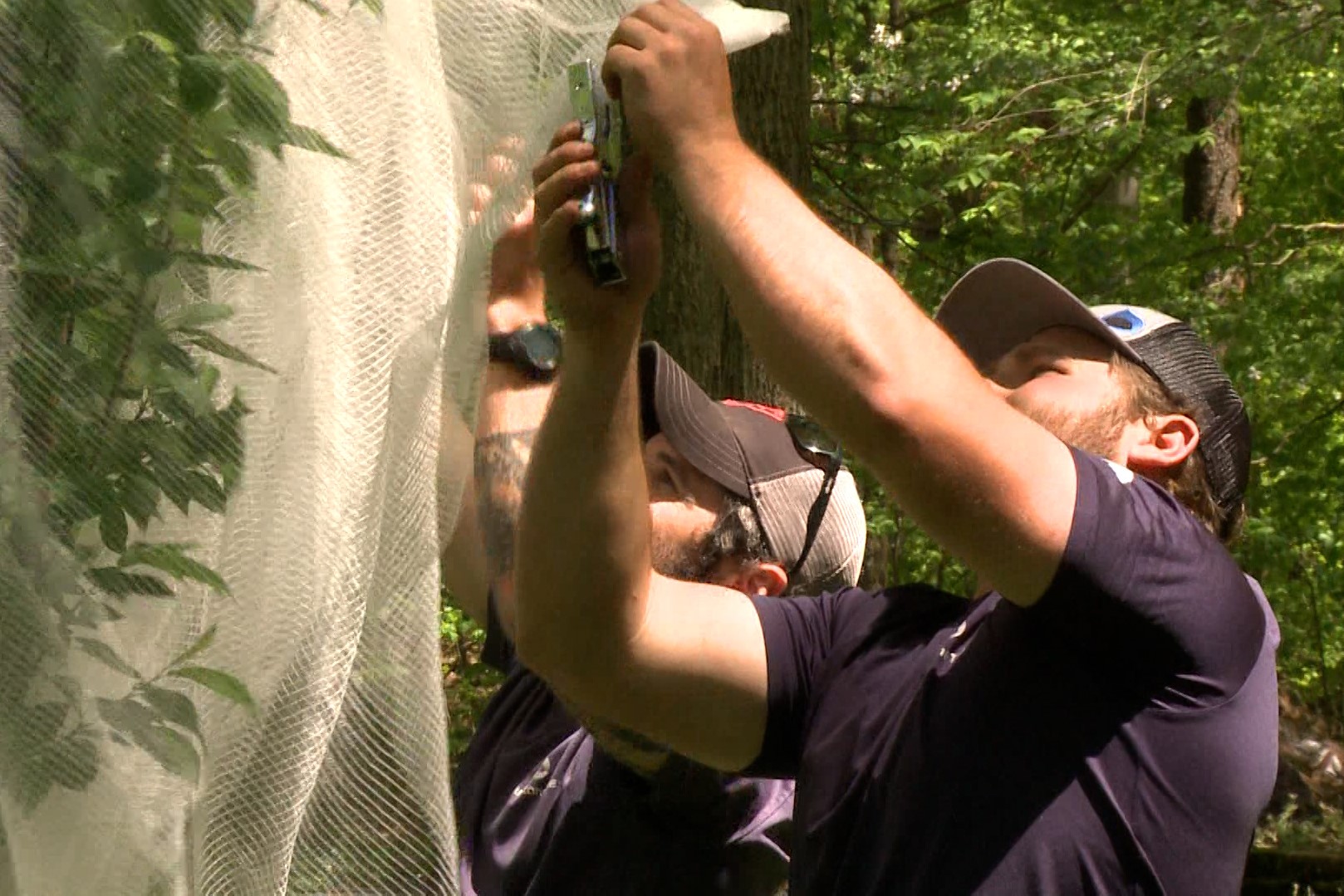Cicadas: Here’s What To Expect Before Brood X Arrives

Beneath the ground, right now, millions of small, winged bugs are waiting. And sometime in the next few weeks, these cicadas will burst forth – almost all at once.
Brood X (pronounced “Brood Ten”), is a group of periodical cicadas that emerges from the dirt once every 17 years to shed their crunchy exoskeletons, sing, mate and usher their babies back into the dirt before the cycle starts anew.
Andrew Liebhold, a research entomologist with the U.S. Forest Service, says Brood X cicadas are likely to appear en masse at the edges of forested land, mostly because they feed on liquid from tree roots.
“I mean, I think there’s no question that they’re probably the most abundant insect in forests in North America, because you can get sometimes over 1,000 emerging out of just one square meter of land,” he said.

(Courtesy of the U.S. Forest Service)
So, if you have lots of trees on or near your property, you’re likely to see most cicadas at the edge of the tree group or in a clearing.“If you have big, broadleaf trees in your yard that are sort of open grown, rather than closed canopy, the odds are probably pretty good that you’ll have a lot of periodical cicadas, because that’s the habitat they like,” Liebhold said. “They don’t feed at all on conifer. So if you have a pine or spruce, they’re not going to they don’t feed on those.”
READ MORE: The Cicadas Are Coming. Here’s How To Help Track Them
You’ll see them before you hear them. But when the song of the Brood X cicadas begins, it’ll be tough to hear anything else.
The rattling and buzzing of their mating call is like a bendy straw – you know, the kind you’d stick in a milkshake or soft drink. Now, imagine the sound it makes when you bend the ribbed part of the straw back and forth – a crunching, vibrating sound.
That’s basically the mechanism cicadas use to sing, as explained by Purdue University’s Exotic Forest Pest Specialist, Elizabeth Barnes.
“They don’t have vocal cords like we do,” she said. “They actually have this organ called a tymbal on the side of their body that they contract, and that’s what makes the noise. Most of their abdomen is actually hollow.

This graphic shows the life cycle of a periodical cicada once it emerges from beneath the ground. (Lianne Pflug)
“So it’s sort of like with something like with a violin, where you’ve got that hollow space that allows the strings of the instrument to make a louder sound.”
And it can get loud. Really loud.
Bloomington arborist Jerad Oren says it best.
“I’m assuming if you were underground for 17 years and it’s time to come out and, you know, make friends and populate, you would make a lot of noise as well,” he said. “So it’s going to be about 100 decibels.”
Oren and his team at Bluestone Tree have been busy over the last few weeks preparing for the arrival of these insects. Not only is Brood X noisy, but they can actually threaten the health of young trees.
The female cicadas lay their eggs in small slits they create in horizontal tree branches. That won’t affect an established, healthy tree much, but younger trees could lose a significant amount of branches or even die if too many females use them to incubate their eggs.
That’s why some homeowners are covering their trees.

Mike Mojonnier and Johnathan Bieker work to cover a young tree with mesh in preparation for the arrival of Brood X cicadas, May 5, 2021. (Joe Hren, WFIU/WTIU News)
Bloomington residents and businesses have hired Oren and his team to outfit their young trees in gauzy fabric to keep the cicadas away.
“It’s a lot of guesstimating,” Oren said. “It’s kind of just seeing how how wide the canopy is going to be and then draping it over, making sure that you can bunch everything up around the bottom without compressing the tips of the branches too much.”But if you’re concerned about a young tree in your yard, you don’t have to hire a service to prep it for the cicada onslaught.
Oren says any fine mesh fabric will do, as long as it’s white, to keep the tree cool in the sun. Painter’s tape works just fine for securing the fabric to the tree’s trunk.
And don’t worry about your vegetable garden – cicadas prefer trees and will leave your tomato plants and herbs alone.
All that’s left to do now? Sit back and wait for the cicadas to emerge. Once they start, most will emerge within just a couple of days.
And the singing won’t be far behind.

